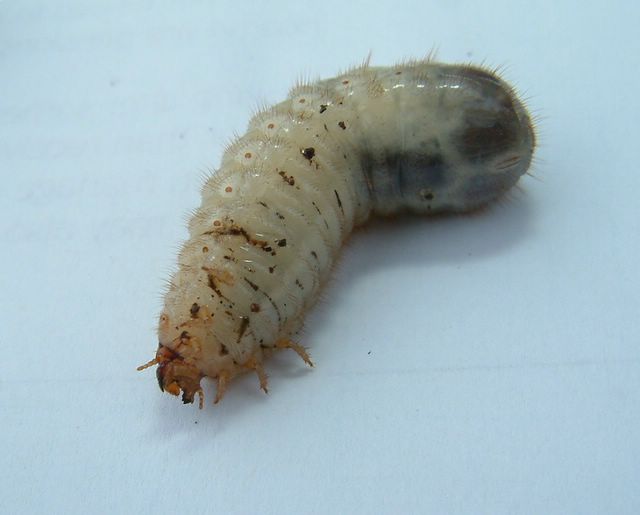First |
Previous Picture |
Next Picture |
Last | Thumbnails

This unique back-crawl behaviour is a very important indentification clue. All they want to do is to hide from view.
Remarkably, these larvae stridulate, not by rubbling their legs like the stag beetle larvae do, but with their mouthparts.
References:
This behaviour was captured on video; see a couple of larvae crawling on paper and crawling on the soil.
Click on this video to have a look at the maxilla moving against the mandibles.
Harvey, D.J., Hawes, C.J., Gange, A.C., Finch, P., Chesmore, D. & Farr, I. (2011) Development of non-invasive monitoring methods for larvae and adults of the stag beetle, Lucanus cervus. Insect Conservation and Diversity 4: 4-14. DOI: 10.1111/j.1752-4598.2009.00072.x
Wessel, A. (2006) Stridulation in the Coleoptera - An Overview. In: Drosopoulos, S. & Claridge, M.F. (eds). Insect Sounds and Communication. Physiology, Behaviour, Ecology and Evolution. (Contemporary Topics in Entomology) CRC-Taylor & Francis, Boca Raton, London, New York: 397-403.